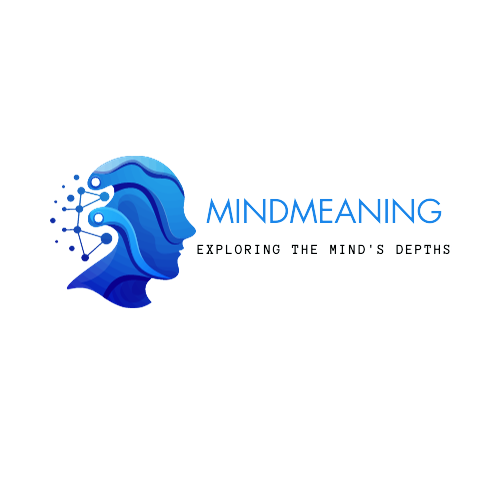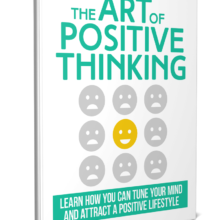7 Self-improvement Habits You Need To Know Today
Self-improvement habits are actions or behaviors that individuals engage in to improve various aspects of their lives. These habits can include practices such as gratitude journaling, goal-setting, mindfulness, developing a growth mindset, cultivating self-compassion, regular exercise, and lifelong learning. Adopting self-improvement habits can lead to increased personal growth, improved mental and physical health, and greater overall well-being.
Are you feeling stuck in your personal or professional life? Are you looking to make positive changes and become the best version of yourself? Developing self-improvement habits is a great way to achieve these goals. In this article, we will discuss 7 essential self-improvement habits that can help you improve your life and achieve success. These habits are easy to adopt, and with consistent practice, they can transform your mindset and well-being. So, let’s take a closer look at these 7 habits and start your journey towards personal growth and fulfillment.
1: Practicing Gratitude
Gratitude is a powerful self-improvement habit that can transform your mindset and well-being.
Importance of Gratitude
Here are some reasons why gratitude is important:
• Gratitude has many benefits for mental health, such as reducing symptoms of depression and anxiety, improving sleep quality, and enhancing overall life satisfaction.
• Practicing gratitude can also improve your relationships by increasing feelings of closeness and connection, and reducing conflicts and negative interactions.
• In addition to mental health benefits, research has shown that gratitude can also have a positive effect on physical health by reducing stress, improving heart health, and boosting the immune system.
Incorporating gratitude into your daily routine can be as simple as starting a gratitude journal, expressing appreciation to loved ones, or reflecting on what you’re thankful for at the end of each day. By making gratitude a habit, you can experience the positive effects it can have on your life.
How to Practice Gratitude
Self-improvement habits can transform your mindset and well-being, and practicing gratitude is an excellent place to start. Here are three effective ways to incorporate gratitude into your daily routine:
- Daily gratitude journaling: Take a few minutes each day to write down three things you’re grateful for. This can be anything from a kind gesture from a friend to the beauty of nature.
- Expressing gratitude to others: Show appreciation to the people in your life by telling them what you’re grateful for about them. This can be in person, over the phone, or in a heartfelt message.
- Focusing on the present moment: Instead of worrying about the future or dwelling on the past, focus on the present moment and appreciate what’s around you. Take a deep breath, notice your surroundings, and feel grateful for the good things in your life.
By incorporating these self-improvement habits into your daily routine, you can cultivate a grateful mindset and experience the many benefits that gratitude has to offer. Start small and be consistent, and over time you’ll notice the positive impact on your well-being.
2: Setting Goals
Importance of Goal-Setting
Self-improvement habits are all about making positive changes to achieve your goals and dreams. One of the most effective self-improvement habits is setting goals. Here are three reasons why goal-setting is so important:
- The benefits of setting goals for motivation: When you set clear and specific goals, you give yourself something to strive for. This can provide a sense of purpose and motivation that can be incredibly powerful.
- How goal-setting can improve productivity: By setting specific, measurable goals, you can create a roadmap for success. This helps you stay focused and avoid distractions, which can lead to increased productivity and a greater sense of accomplishment.
- The power of visualization in achieving goals: When you set a goal, it’s important to visualize yourself achieving it. This can help you stay motivated and focused, and can even help you overcome obstacles that may arise along the way.
To make the most of this self-improvement habit, try setting SMART (Specific, Measurable, Achievable, Relevant, Time-bound) goals that align with your values and aspirations. Write them down, break them into smaller, actionable steps, and track your progress along the way. With commitment and consistency, you can achieve your goals and create a more fulfilling life for yourself.
How to Set Effective Goals
Setting effective goals is key to making progress and achieving success in life. Here are three tips to help you set and achieve your goals:
- SMART goal-setting framework: Use the SMART framework to set specific, measurable, achievable, relevant, and time-bound goals. This will help you create a clear roadmap for success and stay motivated along the way.
- Breaking down long-term goals into smaller tasks: Long-term goals can be overwhelming, but breaking them down into smaller, more manageable tasks can help you make steady progress. Focus on completing one task at a time and celebrate your progress along the way.
- Regularly assessing and adjusting goals as needed: As you work towards your goals, it’s important to regularly assess your progress and make adjustments as needed. This will help you stay on track and make the most of your efforts.
By incorporating these self-improvement habits into your goal-setting process, you can increase your chances of success and make steady progress towards your dreams and aspirations. Remember to stay committed and consistent, and don’t be afraid to seek support and guidance when needed.
3: Practicing Mindfulness
Practicing mindfulness is a powerful self-improvement habit that can help you reduce stress, improve focus and concentration, and regulate your emotions. Here’s why you should consider incorporating mindfulness into your daily routine:
Importance of Mindfulness
- The benefits of mindfulness for stress reduction: Mindfulness can help you manage stress and anxiety by allowing you to focus on the present moment and accept your thoughts and feelings without judgment.
- How mindfulness can improve focus and concentration: Mindfulness can enhance your ability to pay attention and concentrate, which can help you be more productive and efficient in your daily life.
- The impact of mindfulness on emotional regulation: Mindfulness can help you regulate your emotions and improve your overall well-being by increasing your awareness of your thoughts and feelings.
How to Practice Mindfulness
- Mindful breathing exercises: Focus on your breath and observe your thoughts and feelings without judgment. Start with just a few minutes of mindful breathing each day and gradually increase the time.
- Incorporating mindfulness into daily activities: Pay attention to the present moment while performing everyday tasks, such as brushing your teeth or washing dishes.
- Mindfulness meditation: Set aside time each day to practice mindfulness meditation. Find a quiet space, sit comfortably, and focus on your breath while observing your thoughts and feelings.
By incorporating mindfulness into your self-improvement habits, you can enhance your overall well-being and improve your ability to manage stress, focus, and regulate your emotions. Remember to be patient and consistent with your practice, and seek support if needed.
4: Developing a Growth Mindset
A growth mindset is the belief that one’s abilities and intelligence can be developed through hard work, dedication, and perseverance. In contrast, a fixed mindset is the belief that one’s abilities and intelligence are innate and cannot be changed. Developing a growth mindset is an essential self-improvement habit because it can lead to increased learning, development, resilience, and self-esteem.
Importance of a Growth Mindset
Here are some of the benefits of having a growth mindset:
- Learning and Development: A growth mindset fosters a love of learning and a willingness to take on challenges, which can lead to greater achievement and success.
- Resilience: Individuals with a growth mindset are better equipped to handle setbacks and failures because they view them as opportunities for growth and learning.
- Self-esteem: A growth mindset can lead to increased self-esteem and confidence because individuals believe that their abilities can improve through hard work and dedication.
How to Develop a Growth Mindset
Here are some ways to develop a growth mindset:
- Embrace Challenges: Rather than avoiding challenges, see them as opportunities for growth and learning.
- Emphasize the Process: Focus on the process of learning and development rather than solely on the end result.
- Practice Self-Compassion: Treat yourself with kindness and understanding. Reframe negative self-talk and embrace mistakes as a natural part of the learning process.
Developing a growth mindset takes time and effort, but with practice, it can become a powerful self-improvement habit that can transform your life.
5: Cultivating Self-Compassion
Self-compassion is the practice of treating oneself with kindness, understanding, and empathy. It involves being gentle with oneself and acknowledging that it’s okay to make mistakes and have flaws. In this section, we’ll discuss the importance of cultivating self-compassion and how to do it effectively.
Importance of Self-Compassion
• Research shows that self-compassion is associated with improved mental health outcomes, including lower levels of anxiety and depression.
• Practicing self-compassion can also improve our relationships with others by fostering empathy, compassion, and understanding.
• Self-compassion has a positive impact on overall well-being, leading to greater life satisfaction, happiness, and resilience.
How to Cultivate Self-Compassion
Here are some practical ways to cultivate self-compassion:
• Recognize and accept imperfection: Acknowledge that it’s okay to make mistakes and have flaws. Accepting that we’re not perfect allows us to approach ourselves with kindness and understanding.
• Practice self-care and self-kindness: Take care of yourself as you would a close friend. Engage in activities that make you feel good, such as taking a warm bath, going for a walk, or treating yourself to your favorite meal.
• Develop a supportive inner voice: Change the way you talk to yourself by speaking to yourself in a kind and supportive manner. When you’re feeling down or struggling, offer yourself words of encouragement and support.
Cultivating self-compassion takes time and practice, but it’s an important habit to develop for our mental and emotional well-being.
6: Regular Exercise
Importance of Exercise
Regular exercise is crucial for maintaining physical health and overall well-being. It has been proven to have numerous benefits, including:
- Improving cardiovascular health and reducing the risk of chronic diseases such as heart disease, diabetes, and obesity
- Boosting the immune system and reducing the risk of infections and illnesses
- Improving mental health by reducing stress, anxiety, and depression
- Increasing energy levels and improving overall mood
How to Incorporate Exercise into Your Routine
Incorporating exercise into your daily routine can be challenging, but it is essential for maintaining a healthy lifestyle. Here are some tips on how to do so:
- Find an activity that you enjoy: Whether it’s jogging, yoga, or weightlifting, find an activity that you enjoy and that fits your lifestyle.
- Start small and gradually increase intensity: If you are new to exercise, start with low-intensity activities and gradually increase the intensity as you become more comfortable.
- Make exercise a regular habit: Set aside a specific time each day or week to exercise, and make it a part of your daily routine. It will be easier to stick to it if you make it a habit.
7: Lifelong Learning
Self-improvement doesn’t stop once you’ve achieved your goals. Lifelong learning is a crucial component of personal growth and development. Here are some reasons why:
Importance of Lifelong Learning
Continuous learning for personal growth: Lifelong learning allows you to expand your knowledge, skills, and perspectives, leading to personal growth and development. • Improved job prospects: Continuously learning and upskilling can enhance your job prospects and increase your value to employers. • Impact on brain health: Lifelong learning has been linked to improved cognitive function and reduced risk of age-related cognitive decline.
How to Foster Lifelong Learning
Pursue new hobbies and interests: Exploring new hobbies and interests can help you discover new passions and keep your mind active. • Read books and articles on new topics: Reading is a great way to learn about new subjects and expand your knowledge. • Take courses or attend workshops: Enrolling in courses or workshops can provide structured learning opportunities and expose you to new ideas and skills.
By making lifelong learning a habit, you’ll continually challenge yourself, broaden your horizons, and continue to grow and develop throughout your life.
Conclusion
In this article, we have discussed 7 self-improvement habits that can have a positive impact on your life.
Remember that change takes time and effort. It is important to be consistent in practicing these habits and patient in seeing the results.
Don’t wait until tomorrow to start working on yourself.
Take action today and start incorporating these self-improvement habits into your daily routine. With dedication and perseverance, you can achieve personal growth and a happier, more fulfilling life.
References:
- Harvard Business Review: https://hbr.org/topic/self-improvement
- Mayo Clinic: https://www.mayoclinic.org/healthy-lifestyle/adult-health/in-depth/self-improvement/art-20044051
- American Psychological Association: https://www.apa.org/topics/self-improvement
- Verywell Mind: https://www.verywellmind.com/self-improvement-4163525
- MindTools: https://www.mindtools.com/self-improvement.html
Please note that this is not an exhaustive list and there are many other reputable sources available.




